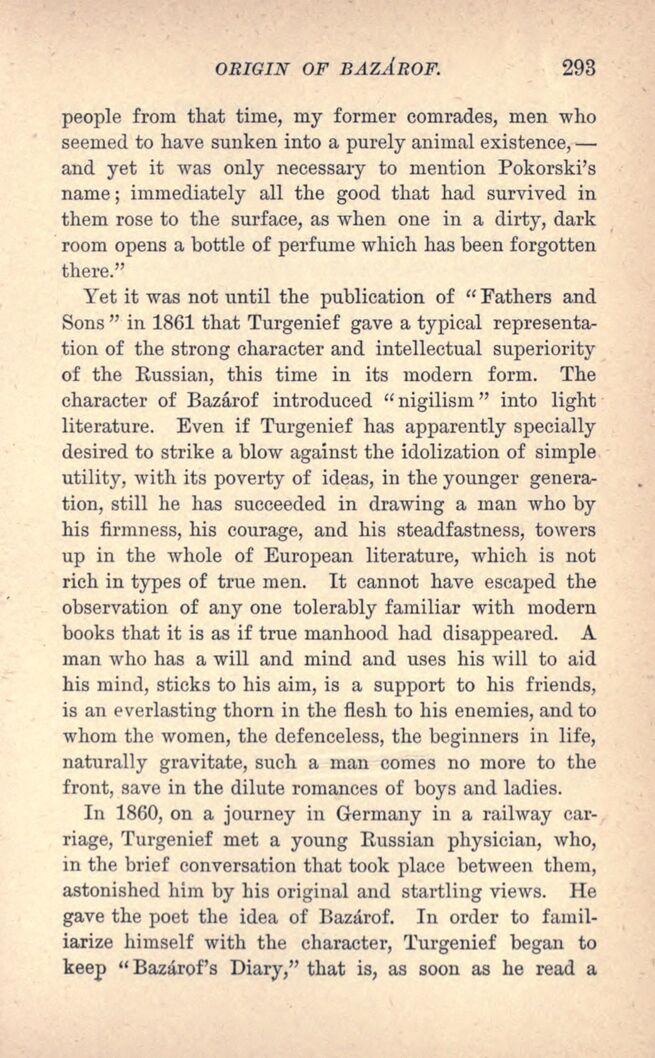
Full resolution (JPEG) - On this page / på denna sida - Impressions of Russian Literature - V

<< prev. page << föreg. sida << >> nästa sida >> next page >>
Below is the raw OCR text
from the above scanned image.
Do you see an error? Proofread the page now!
Här nedan syns maskintolkade texten från faksimilbilden ovan.
Ser du något fel? Korrekturläs sidan nu!
This page has been proofread at least once.
(diff)
(history)
Denna sida har korrekturlästs minst en gång.
(skillnad)
(historik)
people from that time, my former comrades, men who
seemed to have sunken into a purely animal existence, —
and yet it was only necessary to mention Pokorski’s
name; immediately all the good that had survived in
them rose to the surface, as when one in a dirty, dark
room opens a bottle of perfume which has been forgotten
there.”
Yet it was not until the publication of “Fathers and
Sons” in 1861 that Turgenief gave a typical representation
of the strong character and intellectual superiority
of the Russian, this time in its modern form. The
character of Bazárof introduced “nigilism” into light
literature. Even if Turgenief has apparently specially
desired to strike a blow against the idolization of simple
utility, with its poverty of ideas, in the younger
generation, still he has succeeded in drawing a man who by
his firmness, his courage, and his steadfastness, towers
up in the whole of European literature, which is not
rich in types of true men. It cannot have escaped the
observation of any one tolerably familiar with modern
books that it is as if true manhood had disappeared. A
man who has a will and mind and uses his will to aid
his mind, sticks to his aim, is a support to his friends,
is an everlasting thorn in the flesh to his enemies, and to
whom the women, the defenceless, the beginners in life,
naturally gravitate, such a man comes no more to the
front, save in the dilute romances of boys and ladies.
In 1860, on a journey in Germany in a railway carriage,
Turgenief met a young Russian physician, who,
in the brief conversation that took place between them,
astonished him by his original and startling views. He
gave the poet the idea of Bazárof. In order to familiarize
himself with the character, Turgenief began to
keep “Bazárof’s Diary,” that is, as soon as he read a
<< prev. page << föreg. sida << >> nästa sida >> next page >>